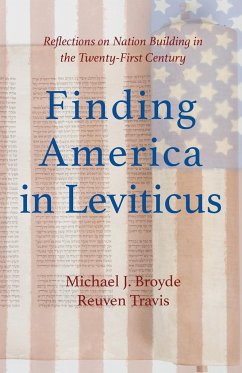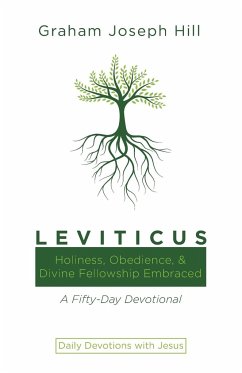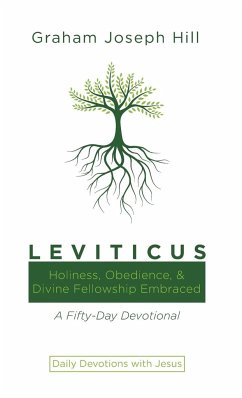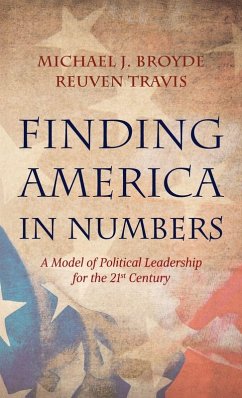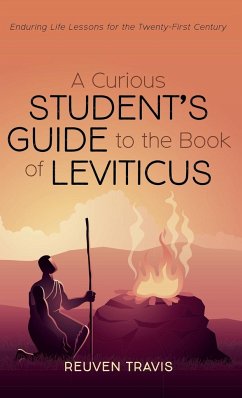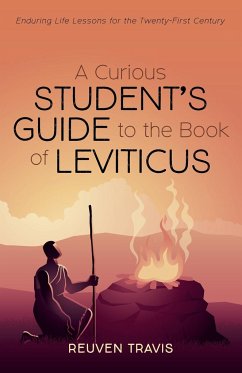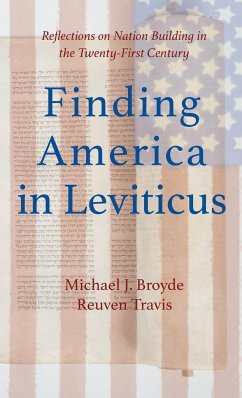
Finding America in Leviticus
Versandkostenfrei!
Versandfertig in 1-2 Wochen
30,99 €
inkl. MwSt.
Weitere Ausgaben:

PAYBACK Punkte
15 °P sammeln!
It would seem that we have taken on an impossible task in this book: trying to demonstrate to modern Americans, be they secular or religious, Jews or Christians, that the sacrificial rites found in Leviticus have any germaneness to their lives. After all, to the extent that any modern reader turns to the pages of Leviticus at all, the notion that they would be inspired by the text and pine for the restoration of animal sacrifices is ludicrous! However, Leviticus is more than laws of sacrifices. As we demonstrate, Leviticus sets forth a template for nation-building via large, regularly-schedule...
It would seem that we have taken on an impossible task in this book: trying to demonstrate to modern Americans, be they secular or religious, Jews or Christians, that the sacrificial rites found in Leviticus have any germaneness to their lives. After all, to the extent that any modern reader turns to the pages of Leviticus at all, the notion that they would be inspired by the text and pine for the restoration of animal sacrifices is ludicrous! However, Leviticus is more than laws of sacrifices. As we demonstrate, Leviticus sets forth a template for nation-building via large, regularly-scheduled communal gatherings intended to foster national unity and identity among the Jewish people.





